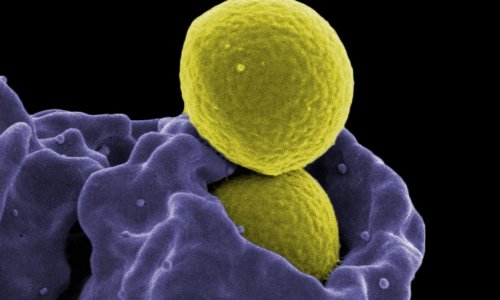An end to out-sourcing?
As MRSA affects about 300,000 patients and costs UK £1 billion annually, the country's public services union demands the return of in-house cleaners.
Report: Peter Howieson

Hospital-acquired infections (HAI), of which Methicillin-resistant Staphylococcus aureus (MRSA) is the best known, are reported to be costing the British National Health Service (NHS) about £1 billion per year. Official estimates indicate that some 300,000 patients suffer hospital-acquired infections each year, with around 5000 fatalities. A fifth of those cases are caused by MRSA.
The story behind the rise of MRSA is interesting. After one of its many reorganisations the NHS replaced the cleaners responsible for individual wards with teams of cleaners visiting wards in rotation. To achieve further economies cleaning was then contracted out to outside providers. Over the last 20 years, privatisation, outsourcing, and clever bargains have reduced the hospitals cleaning bills drastically. There are now only 55,000 cleaners working in NHS hospitals, compared with about 100,000 in 1984.
Indisputably the new cleaning regimes have led to a fall in standards. Dirty toilets are often left unwashed for hours if the cleaning team has already visited a ward. A ward sister can request help, but often cleaning teams are too under-resourced to respond immediately. In many hospitals cleaning management is in now in the hands of outside organisations and has resulted in uncoordinated and inconsistent cleaning schedules. If there is a chain of sub-contractors involved in the service provision then the blame for service failure can be passed up and down the line.
An independent report commissioned by UNISON, the public services trade union, found that outsourcing of cleaning jobs has led to lower pay, less training, high staff turnover and dirty hospitals. It wants private contracts scrapped and all cleaning to be brought back under NHS control. The union has called for increased efforts to improve cleaning standards in hospitals, and for procurement to be based on effectiveness and not cheapness. It quotes a now large body of clinical evidence identifying links between poor environmental hygiene and the transmission of the micro-organisms causing HAI.
The problem of cheap soap - The report highlights dangers inherent in outsourcing. The purchase of soap is usually the responsibility of the cleaning contractor and some contractors buy cheap substandard soap. Repeated use of such soap - in regular hand washing - may give nurses chronic skin lesions on their hands, and this renders them vulnerable to chronic colonisation with MRSA. This is no special threat to their own health but carries a risk to their patients, and sometimes means that the staff concerned must spend long periods off work
The report contends that the NHS should reconsider its policy of out-sourcing and take the simple and effective step of bringing hospital cleaning back in-house. At the same time it should provide sufficient resources for acceptable pay, training, and staffing levels.
18.12.2006





